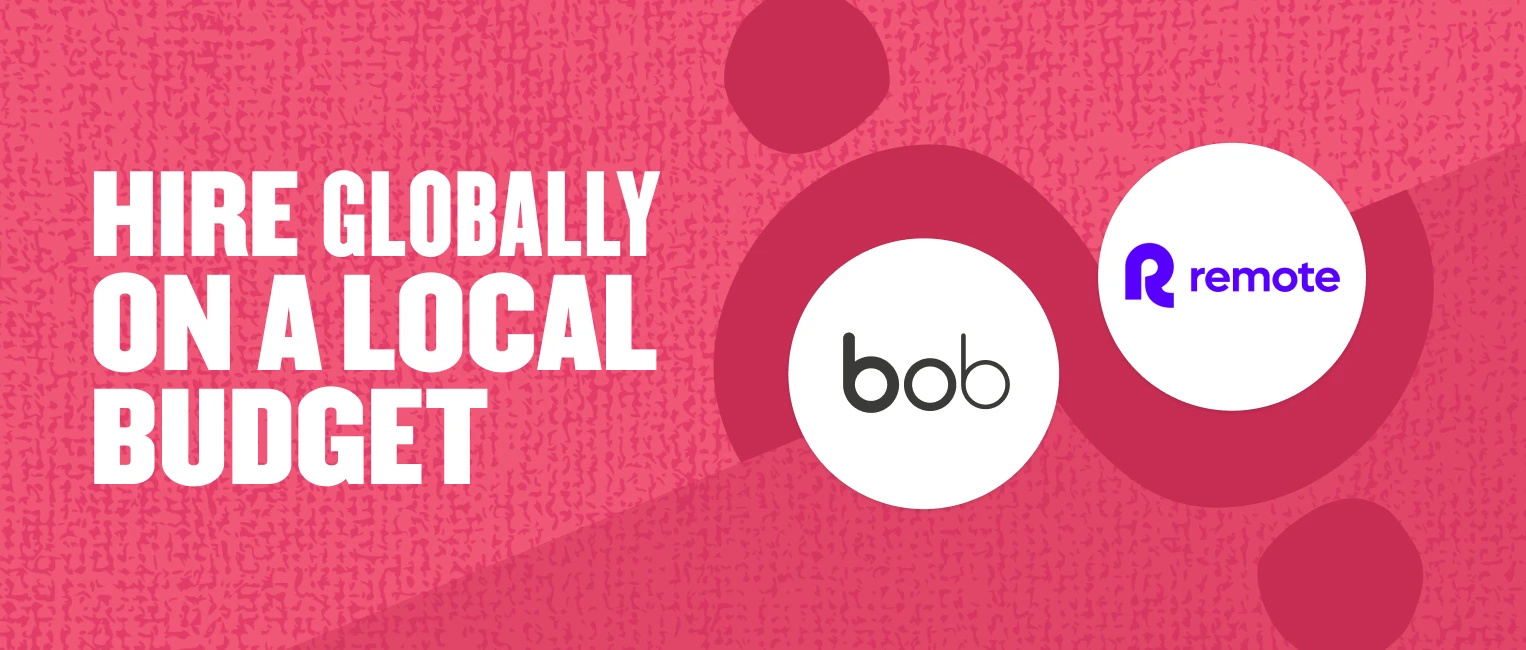Tough economic times mean tough decisions for companies and their leaders. You still need to grow, manage your spending, and hire the right people. But how do you make it work when the targets are big and the budget is tighter than last year?
The advent of remote work offers one possible solution. However, many companies have been hesitant to take the obvious next step: hiring international candidates.
Why is that? New research in Remote’s Global Benefits Report shows that 60 percent of company leaders expect their organizations to become more remote than they already are. Remote work isn’t going away, so why does it matter whether people work far away from headquarters?
The answer is the usual one: We’re afraid of the unfamiliar. In the new era of work, though, when many people can do their jobs anywhere they have an internet connection, companies must be more flexible. If you want great talent—and can’t afford to pay everyone like they live in San Francisco—you have to broaden your hiring horizons.
It’s time to look beyond your usual talent neighborhoods and see the enormous opportunities that await you beyond your borders. In this article, we’ll tell you where to find international talent; how to stay compliant when you hire abroad; and how to maximize your headcount budget in the process.
Where do you find international hires?
It’s surprisingly easy to hire international talent, pay fair salaries, and keep your headcount budget in check. No company wants a reputation for hiring abroad and paying their global teams low wages, especially when those teams are performing critical duties. To make people feel appreciated while watching your bottom line, you need to know two things: where to hire and how much to pay.
The first step can be quite exciting if you have never hired abroad before. The world is filled with brilliant people doing great work. Suddenly gaining access to that pool of talent can be both thrilling and overwhelming.
However, you probably won’t solve either your hiring or your budget woes if you look for candidates in the same places where everyone else is looking. London, Tokyo, New York City, Paris—all great cities, but not exactly under the radar or budget-friendly.
Instead, take a more nuanced approach to the international hiring process and examine some of the underserved markets for talent around the world. What about Melbourne? Mexico City? Helsinki? Rio de Janeiro? These are all great places filled with brilliant people, and all markets that have been severely overlooked by international recruiters.
How much do you pay international employees?
The follow-up question once you find prospective hires in other countries is, of course, how much to pay them.
You want to pay fair wages. Unless you have very deep pockets, you probably can’t afford to pay everyone the rates you would if they lived in the most expensive markets. Basecamp actually does pay all its people at the 90th percentile of the San Francisco market. This strategy makes Basecamp competitive for the absolute best of the best, everywhere in the world—but it is very expensive.
For most companies with tighter headcount budgets, the goal is to provide a similar standard of living for everyone working at the same level. Your people may not love it if some team members live like royalty while others can barely make rent while working in the same role.
Some companies use custom-designed salary calculators for this. Buffer, for example, publicizes not only its employees’ salaries but also the calculator the company uses to set those salaries. Want to know how much you would make at Buffer as a product manager who does not live in a city with a high cost of living? With two clicks, you can.
Other companies leave a little more wiggle room. For example, Remote publicizes its salary calculation process, which includes a 65th percentile benchmark for all hires; an 80-120 percent multiplier to account for performance and time in a role; and geo ranges, which adjust salaries based on the countries where employees live. If you are hiring tech talent (like engineers, product managers, and designers), consider investing in an HR tool that shows suggested salaries and total costs of employment (including things like benefits and taxes) in several countries around the world.
How do you hire people in other countries legally?
This sounds like a big question, but it’s actually quite simple. You have three options:
1. You can open your own local entity in a new country
Many people think this is the only option, which explains their hesitancy to hire abroad. It can take several months and a lot of money to break into a local market and open a whole new business in a whole new country. However, it may make sense to do so if you are planning a major expansion into that region.
If you have long-term plans to hire 20 or more people in a single country, you should probably start planning to open that legal entity now. Remember, if you go this route, you’ll likely need local partners for things like payroll and benefits. Many businesses use a PEO, or professional employer organization, to co-employ local workers and manage these tasks.
2. You can hire workers through an employer of record (EOR)
An employer of record, or EOR, hires professionals on your behalf in another country and handles things like payroll, benefits, taxes, and compliance. Some EORs even offer things like relocation assistance and stock options management. When you work with an EOR, you do not have to open your own local legal entity. The best EORs can actually onboard employees in multiple countries in a matter of days instead of months, which can save you thousands of dollars (and hours).
Of course, there are a few downsides. If you plan to have lots of people working in a single country for a long time, you’ll save money by opening your own entity. (Pro tip: Use an EOR to hire people quickly, then transfer the employees to your own entity once it’s open.) In addition, not all EORs are the same. Be sure only to work with an EOR that charges a flat fee—otherwise, you could end up paying a percentage of each employee’s salary to your EOR, which can quickly become expensive.
Recommended For Further Reading
3. You can work with international contractors
Hiring contractors in other countries is a great way to access international talent quickly without a lot of onboarding time. You may be required to pay in local currencies in some cases, but in general, it is easier to work with contractors if you have short-term needs. That said, contractors are not always a long-term solution.
Be careful before engaging a contractor in another country for a long period of time. In many places, simply working with the same contractor for several months in a row is sufficient to trigger employee status. Finding yourself suddenly fighting a misclassification battle in an unfamiliar country is never a fun time. Make sure you have solid contracts and regularly review your agreements to avoid falling into compliance trouble.
Hire beyond borders for sustainable growth
When the global market takes a downturn, the companies that thrive don’t hunker down and wait out the storm: They find solutions. In the economic uncertainty of 2023, coupled with the rise of remote work, the smart money is on companies that expand their hiring strategies to include new countries.
When you hire in new markets, you don’t just make the smarter decision for your bottom line. You also bring new opportunities to places with brilliant and talented people who deserve the chance to showcase their skills. Why limit yourself to hiring the best engineer or salesperson in your city, when you could hire the best person for the job across multiple countries?
No one can accurately predict what will happen next in the global economy. But if you hire internationally, pay fair rates, and keep your compliance on track, you won’t have to worry—you will have a diverse and talented team ready to tackle any challenge.


